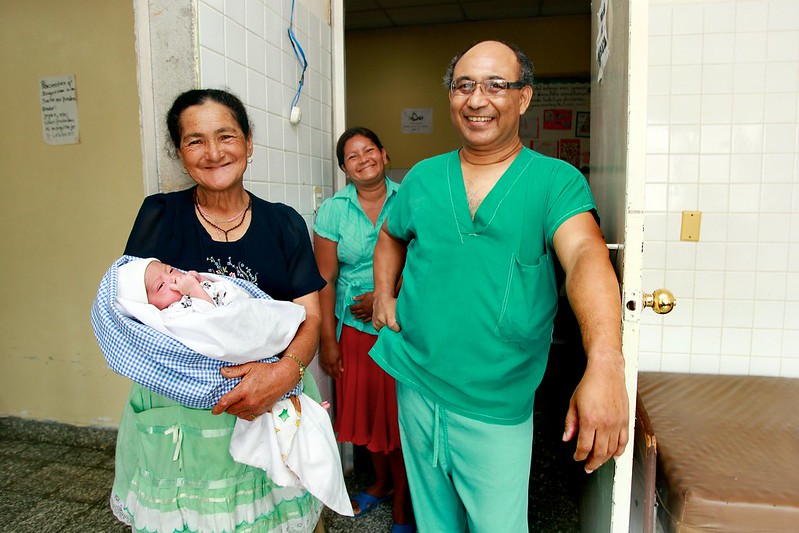Health Care in Paraguay: PAHO in the Department of Canindeyú
 A recent initiative led by the Pan American Health Organization (PAHO) saw the transformation of 31 health facilities in Paraguay’s Department of Canindeyú. These facilities ranged from independent, family-run health services to regional hospitals and dispensaries.
A recent initiative led by the Pan American Health Organization (PAHO) saw the transformation of 31 health facilities in Paraguay’s Department of Canindeyú. These facilities ranged from independent, family-run health services to regional hospitals and dispensaries.
Canindeyú at Risk
Canindeyú has a current population of approximately 250,000 people, of which an estimated 38% live in poverty and 7.7% live in extreme poverty. Paraguay’s health care system has been characterized by fragmented provision and minimal public investment, leading to limited coverage and disparities in access and care quality.
Due to insufficient equipment, many small health care facilities in remote villages had to transfer all their patients. PAHO national consultant on health systems and services, Dr. Tatiana Fleitas, noted that the aftermath of the COVID-19 pandemic exacerbated the importance of strengthening local health care facilities in Paraguay.
Family Health Units to Regional Hospitals
The Maracana 2nd Frame family health unit has benefited from the PAHO initiative, which donated an electrocardiogram and a crash cart. This has helped stabilize patients who have heart attacks before they are transported to a hospital. Moreover, the Regional Health Directorate has hired additional doctors, which has allowed them to double the number of consultations per week.
The Regional Hospital of Salto del Guairá has also experienced a significant transformation with the introduction of new devices by PAHO. These innovations, such as refrigerators for vaccine storage, incubators for newborns and crash carts for emergencies, have revolutionized health care in the region. The refrigerators ensure the safe transportation and storage of vaccines, the incubators provide a nurturing environment for newborns and the crash carts enhance the hospital’s capacity to provide immediate care to adults and children.
In the remote community of Tekohá Y’ Apo, situated 125 kilometers away from Paraguay’s capital, a small pink wooden house with a tin roof, named Avá Guaraní ethnic group health post, stands as a testament to the transformative power of the PAHO initiative. For years, medical care in the area was scarce. However, thanks to the recent initiative, 31 health facilities, including hospitals, family health units and dispensaries, have significantly transformed, bringing quality health care closer to the community.
The impacts of PAHO are also felt on a personal level. The Tekohá Y’ Apo community health post nurse, Natalia Saucedo, now has the necessary medical tools to provide better care to her community. Saucedo’s words reflect these changes’ transformative effect: “Before, we had nothing and had to transfer the patient out of the community for any basic care. Now I have the equipment I need to do everything, including blood pressure checks and wound care.”
Conclusion
From individual nurses making house calls in their communities to regional hospitals caring for many patients, every medical facility deserves high-quality technologies and medicines to keep people safe and healthy. PAHO has shown that health care reform in Paraguay is achievable by improving the Department of Canindeyú medical facilities.
– Lilah Dees
Photo: Flickr
